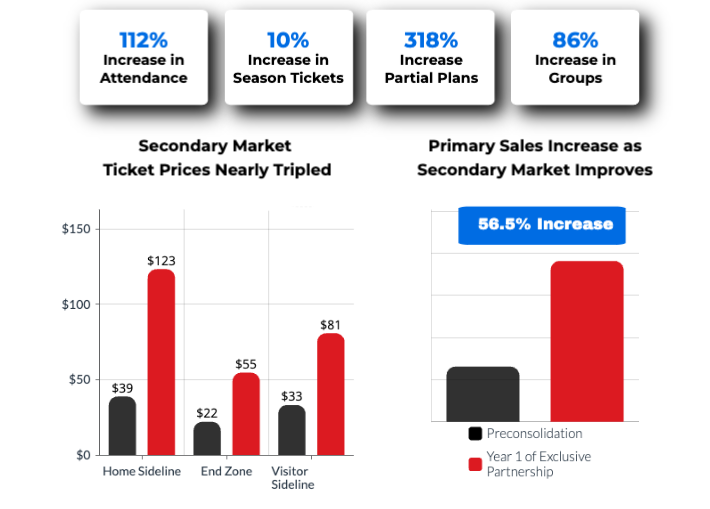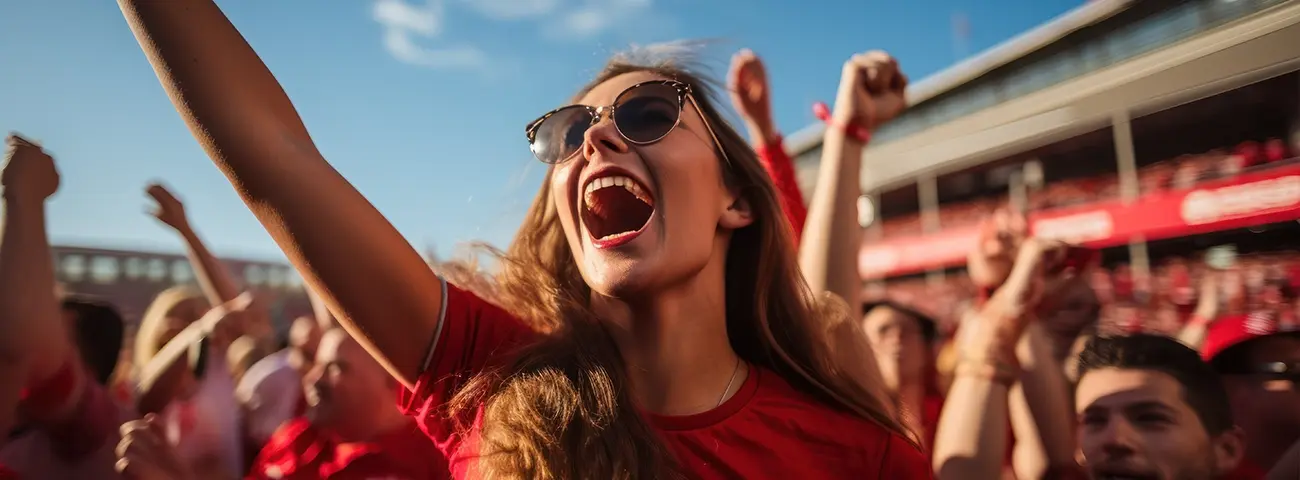The Power of a Strong Secondary Ticketing Partner: Boosting Primary Market Success
The live events industry thrives on the enthusiasm and engagement of fans. A key component of ensuring the success of sporting events, concerts and theater performances lies in crafting an exceptional ticketing strategy. In today’s ticketing world, the primary and secondary markets play pivotal roles, and a harmonious alignment between them can significantly impact attendance and revenue.
A strong secondary ticketing partner can ease inventory optimization, help create a proactive sales strategy, give high-level access to customer and market data and provide the opportunity for tailored pricing solutions through an experienced team.
Understanding the Primary and Secondary Markets
The primary market is usually referred to as the network where a rightsholder, promoter, sports team or event producer that is putting on an event or game sells tickets – this can be through a primary ticketing partner or from the official site where the event is being held.
The secondary market encompasses ticket reselling, often by third-party entities that have purchased tickets in bulk from the primary market. Platforms like StubHub and Vivid Seats are prominent examples, holding significant market shares. However, this market has plenty of challenges, including pricing inconsistencies, fraudulent activities and consumer exploitation.
This is where having a strong secondary ticketing partner comes into play. Partnering with a company with world-class customer service, proven ticketing results and untapped customer data with fan-buying behavior will set your partnership up for success for years to come. These attributes are usually only seen in ticketing partners that understand and are close to their consumers and can be present throughout the entire buying process.
The multitude of outlets available for sellers in the secondary market often leads to disparities in pricing, posing challenges for consumers seeking fair deals. Additionally, the lack of oversight opens the door to fraudulent activities and the exploitation of fans with exorbitant prices. It’s crucial to find a partner that is transparent with their consumer and truly cares about every touchpoint.
The Need for a Strong Secondary Partner
Enter the concept of a strong secondary ticketing partner, which can be a game-changer for the primary market. This strategic collaboration ensures both markets are aligned, maximizing attendance and revenue for live events. It also plays a crucial role in building trust and credibility, contributing to the success of primary tickets, and, in turn, creating the best experience possible for consumers.
Beyond mere alignment, a reliable secondary partner helps mitigate pricing inconsistencies and reduces the risk of fraudulent activities. Having a strong partner expands the market reach and visibility of an event, reaching a broader audience and enhancing the overall fan experience by using multiple exchanges to maximize reach to the consumer.
Real-world examples underscore the positive outcomes of strong partnerships between teams, venues and secondary ticketing platforms. Case studies provide tangible evidence of how such collaborations have contributed to the success of live events.
There is a high percentage of teams that underestimate the value and impact of having one secondary partner on their season ticket renewal rate and single-game sales. One Division 1 football team had limited data on fans who purchased from the secondary market and struggled to maintain price integrity and attendance.
With the pricing expertise of TFL, this team achieved a stronger secondary market. After the partnership, they saw significant growth in season ticket sales, partial plan sales, group ticket sales and overall attendance due to the consolidation of having one secondary ticketing partner. Having purchase data from the secondary market allowed this University to align pricing with purchase behavior to drive sales and attendance.

The power of a strong secondary ticketing partner cannot be understated. Teams and venues stand to benefit significantly from this collaboration, not only in terms of financial gains but also in fostering a positive and trustworthy environment for fans. As the live events industry continues to evolve, exploring and embracing such partnerships becomes a strategic imperative for sustained success.



